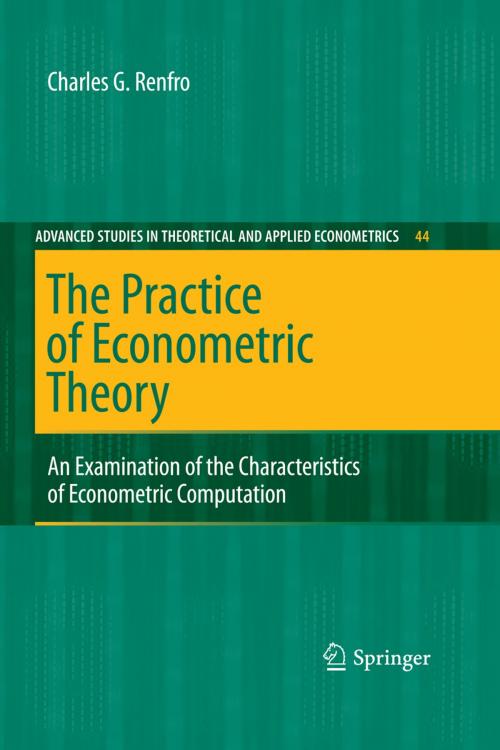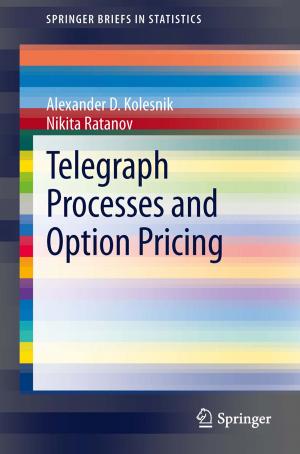The Practice of Econometric Theory
An Examination of the Characteristics of Econometric Computation
Business & Finance, Economics, Econometrics, Nonfiction, Science & Nature, Mathematics, Applied| Author: | Charles G. Renfro | ISBN: | 9783540755715 |
| Publisher: | Springer Berlin Heidelberg | Publication: | June 29, 2009 |
| Imprint: | Springer | Language: | English |
| Author: | Charles G. Renfro |
| ISBN: | 9783540755715 |
| Publisher: | Springer Berlin Heidelberg |
| Publication: | June 29, 2009 |
| Imprint: | Springer |
| Language: | English |
Econometric theory, as presented in textbooks and the econometric literature generally, is a somewhat disparate collection of findings. Its essential nature is to be a set of demonstrated results that increase over time, each logically based on a specific set of axioms or assumptions, yet at every moment, rather than a finished work, these inevitably form an incomplete body of knowledge. The practice of econometric theory consists of selecting from, applying, and evaluating this literature, so as to test its applicability and range. The creation, development, and use of computer software has led applied economic research into a new age. This book describes the history of econometric computation from 1950 to the present day, based upon an interactive survey involving the collaboration of the many econometricians who have designed and developed this software. It identifies each of the econometric software packages that are made available to and used by economists and econometricians worldwide.
Econometric theory, as presented in textbooks and the econometric literature generally, is a somewhat disparate collection of findings. Its essential nature is to be a set of demonstrated results that increase over time, each logically based on a specific set of axioms or assumptions, yet at every moment, rather than a finished work, these inevitably form an incomplete body of knowledge. The practice of econometric theory consists of selecting from, applying, and evaluating this literature, so as to test its applicability and range. The creation, development, and use of computer software has led applied economic research into a new age. This book describes the history of econometric computation from 1950 to the present day, based upon an interactive survey involving the collaboration of the many econometricians who have designed and developed this software. It identifies each of the econometric software packages that are made available to and used by economists and econometricians worldwide.















